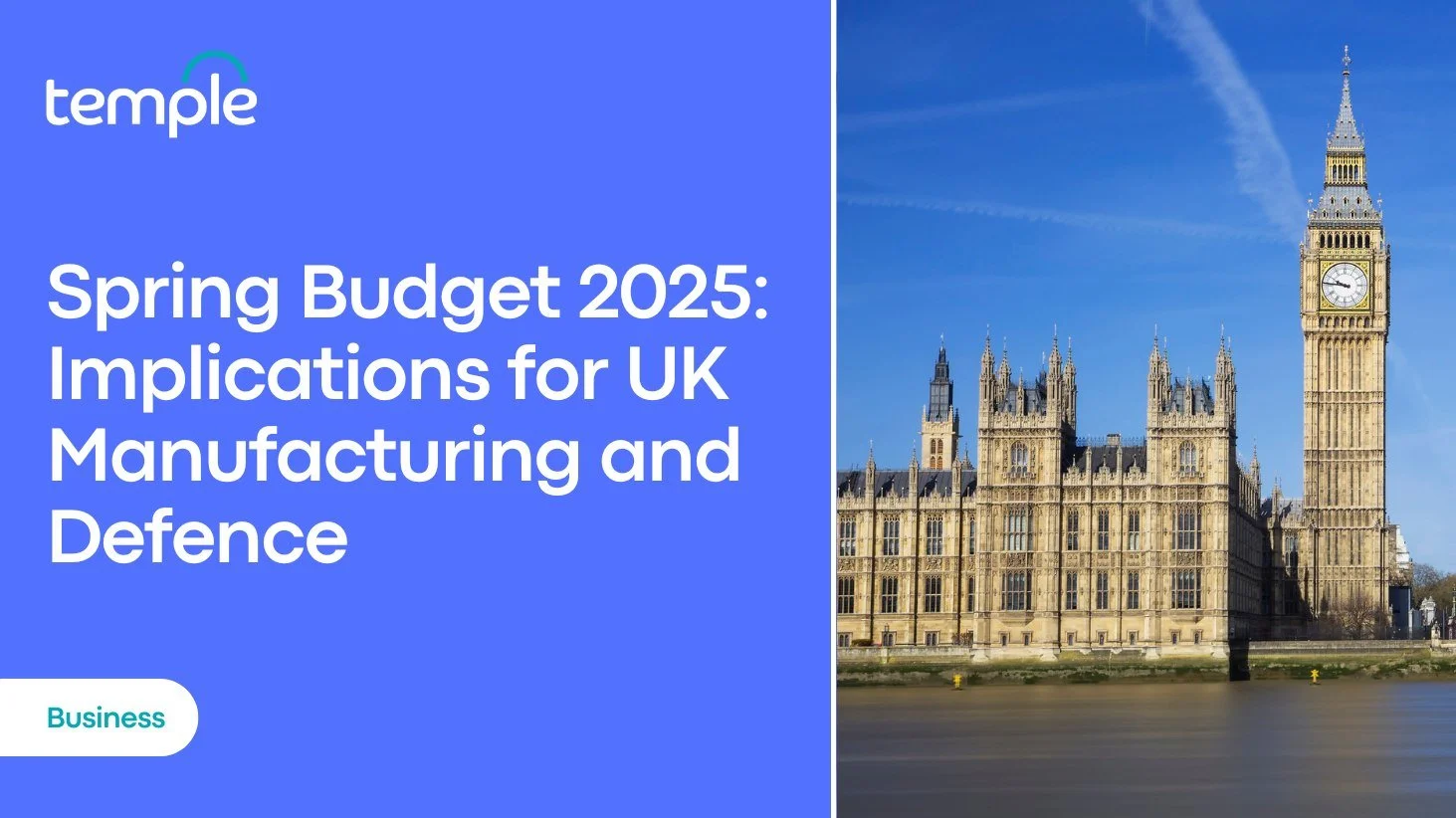Spring Budget 2025: Implications for UK Manufacturing and Defence
As businesses prepare for potential supply chain disruptions amid an escalating global trade war, investment in new technology has emerged as a top priority for the UK’s senior executives ahead of Rachel Reeves’ Spring Budget today.
Research indicates that 70% of business leaders are advocating for increased investment in technologies such as artificial intelligence, smart warehousing, and data analytics. These advancements are seen as crucial for modernising supply chains and maintaining competitiveness in the face of growing global trade tensions.
At the same time, 62% of UK C-suite executives are calling for greater investment in workforce development, with a particular emphasis on long-term skills training and apprenticeship schemes. This highlights ongoing challenges in the manufacturing sector, where an ageing workforce and difficulties in attracting young talent remain key concerns.
Presenting the Spring Budget, the Chancellor remarked: “Our task is to secure Britain’s future in a world that is changing before our eyes. At the same time, the global economy has become more uncertain, bringing insecurity at home, as trading patterns become more unstable and borrowing costs rise for many major economies.
“In the autumn, I set out our new fiscal rules that would guide this government. These fiscal rules are non-negotiable. They are the embodiment of this government’s unwavering commitment to bring stability to our economy and to ensure security for working people.”
With geopolitical uncertainty dominating the headlines, it was no surprise that defence played a central role in this spring statement. Reeves stated: “Because we are living in an uncertain world, we will increase defence spending to 2.5% of GDP, reducing overseas aid to 0.3% of gross national income in order to fund our more capital intensive defence commitments.
“Earlier this month, the Organisation for Economic Co-operation and Development (OECD) downgraded this year’s growth forecast for every G7 economy, including the UK and the Office for Budget Responsibility (OBR) has revised our growth forecast for 2025 from 2% in the autumn to 1% today. I am not satisfied with these numbers and that is why we are serious about taking the action needed to grow our economy.
“A changing world presents challenges, but it also presents new opportunities for new jobs and new contracts in our world-class defence industrial centres, from Belfast to Deeside, and from Plymouth to Rosyth.
“In February, the Prime Minister set out our government’s commitment to increase spending on defence to 2.5% of GDP from April 2027, the biggest sustained increase in defence spending since the end of the Cold War, with an ambition to spend 3% of GDP on defence in the next parliament. That was the right decision in a more insecure world.
“But we have to move quickly in this changing world, and that starts with investment. So today, I can confirm that I will provide an additional £2.2bn for the Ministry of Defence in the next financial year, a further down payment on our plans to deliver 2.5% of GDP by 2027.
“This additional investment is not just about increasing our national security, but increasing our economic security too. As defence spending rises, I want the whole country to feel its benefits, so I will set out the immediate steps that we are taking to boost Britain’s defence industry and to make the UK a defence industrial superpower.
“We will spend a minimum of 10% of the Ministry of Defence’s equipment budget on new novel technologies, including drones and AI-enabled technology. This will drive forward advanced manufacturing production in places like Glasgow, Derby and Newport, creating demand for highly skilled engineers and scientists and delivering new business opportunities for UK tech firms and start-ups.
“We will establish a protected budget of £400m within the Ministry of Defence, a budget that will rise over time for UK defence innovation with a clear mandate to bring innovative technology to the front line at speed.
“And we will reform our broken defence procurement system, making it quicker, more agile and streamlined, and giving small businesses across the UK better access to Ministry of Defence contracts, something welcomed by the Federation of Small Businesses.”

